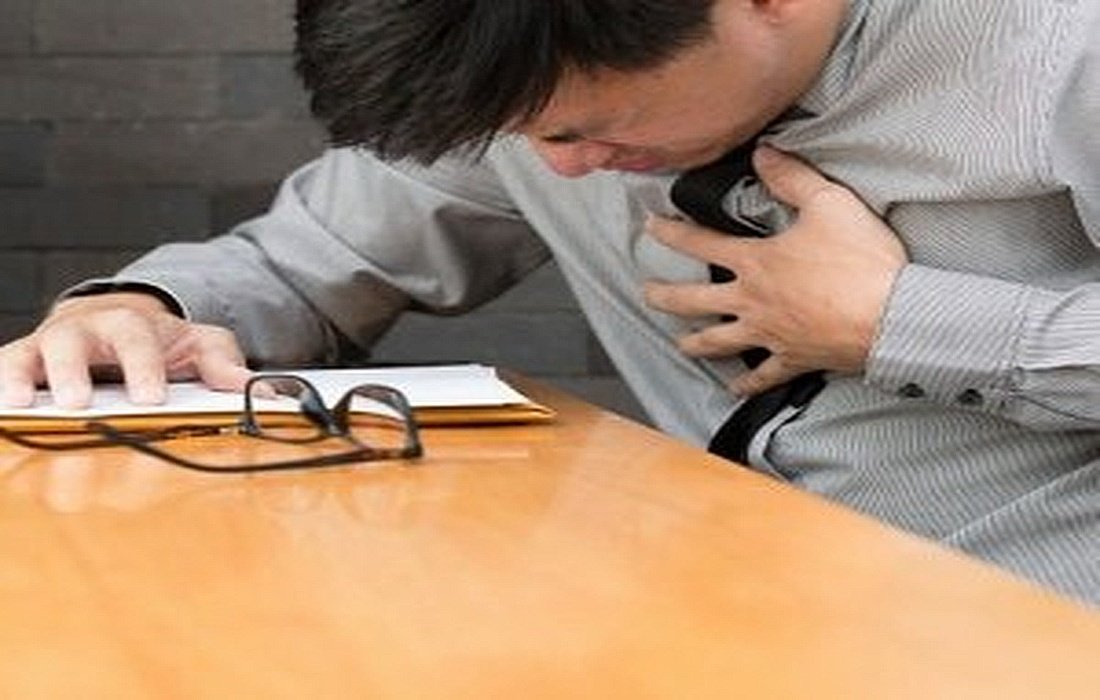Various reasons that cause chest pain.
Chest pain appears in different forms, ranging from a sharp stabbing sensation to tightness. Sometimes.Chest Painfeels like crushing or burning, and in some cases, the pain radiates to the neck and jaw, then to the back or both arms. Various issues can cause chest pain.
The most critical life-threatening reasons are related to the heart or lungs. Since chest pain can indicate a serious problem, seek immediate medical help. In most cases, we attribute chest pain to heart disease or stomach issues; these two are part of serious illnesses that manifest with chest pain.

Know all the reasons for chest pain.
Symptoms of Chest Pain:
Chest pain can cause different sensations depending on what triggers the symptoms. Often, the cause is unrelated to the heart, and explaining it to the doctor can be easy; however, certain signs can help differentiate the cause of chest pain.
Chest Pain Related to the Heart and Its Symptoms:
Although chest pain is often associated with heart disease, many individuals with heart conditions report feeling vague discomfort that is not clearly recognized as pain. Generally, chest discomfort related toheart attacksor other heart problems may be explained by one or more of the following:
- Pressure, fullness, burning, or tightness in the chest.
- Pain that radiates to the back, neck, jaw, shoulders, and both arms.
- Pain that lasts more than a few minutes, worsens with activity, comes and goes with increased intensity.
- Shortness of breath
- Cold sweat
- Dizziness or weakness
- Nausea or vomiting

Nausea and vomiting are symptoms of chest pain related to the heart.
Other Types of Chest Pain:
Diagnosing heart-related chest pain from other types is more challenging; however, chest pain less likely caused by heart issues is often accompanied by:
- A sour taste or the sensation of food coming back into the mouth.
- Difficulty swallowing.
- Pain that improves or worsens with body position changes.
- Pain that occurs when taking deep breaths orcoughingoccurs.
- Discomfort when pressure is applied to the chest.
- Pain that persists for hours.
Common SymptomsHeartburn– A painful burning sensation behind the sternum – can be caused by heart or stomach issues.

Chest Pain When Coughing
When to See a Doctor?
If you have new or unexplained chest pain, or suspect you’re having a heart attack, call emergency services immediately.
Causes of Chest Pain:
Chest pain has many potential causes, all of which require medical attention.
Heart-Related Causes of Chest Pain:
Examples of causes of chest pain include:
Heart Attack:
A heart attack results from blocked blood flow.

Chest pain caused by heart attacks
Chest pain arising from heart diseases
Angina:
Angina is the term for chest pain caused by insufficient blood flow to the heart. It is often due to a buildup of thick plaques on the inner walls of arteries supplying blood to your heart, narrowing these arteries and restricting blood flow, especially under stress.
Aortic Dissection:
This dangerous condition involves the main artery that carries blood from your heart. If the inner layers of this blood vessel tear, blood can enter between the layers and potentially cause the aorta to rupture.
Pericarditis:
This refers to inflammation of the sac surrounding your heart. It usually causes severe pain, particularly when breathing while lying down.
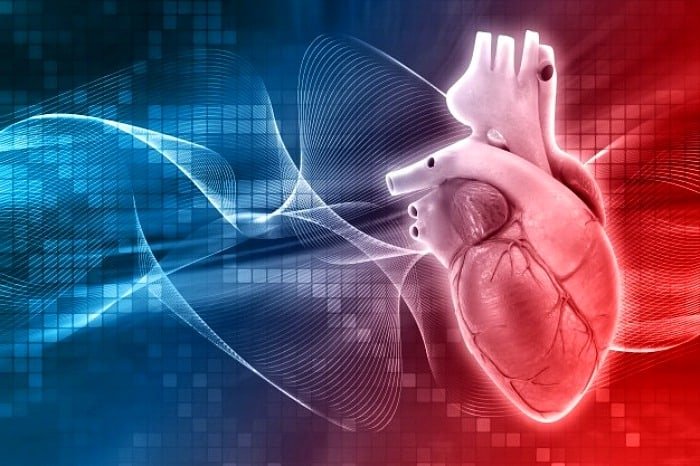
Heart Disease and Chest Pain
Gastrointestinal Causes of Chest Pain:
Chest pain can also arise from digestive disorders, including:
Heartburn:
This painful and burning sensation behind your sternum occurs when stomach acid enters the tube connecting the throat to the stomach.
Swallowing Disorders:
Esophageal disorders can make swallowing difficult and even painful.
Issues with Gallbladder and Pancreas:
Gallstones or inflammation of the gallbladder or pancreas can cause abdominal pain that radiates to your chest.

Chest Pain Related to Stomach andHeartburnMuscular and Skeletal Causes of Chest Pain:
Some types of chest pain are associated with injuries and other issues affecting the chest wall, including:
Costochondritis:
In this condition, the cartilage of the ribs, especially those that connect the ribs to the sternum, becomes inflamed and painful.
Muscle Discomfort:
Chronic pain syndromes, such as fibromyalgia, can cause persistent muscle-related chest pains.
Rib Injuries:
A damaged or fractured rib can lead to chest pain.
Chest Pain Related to Rib Bone Injury
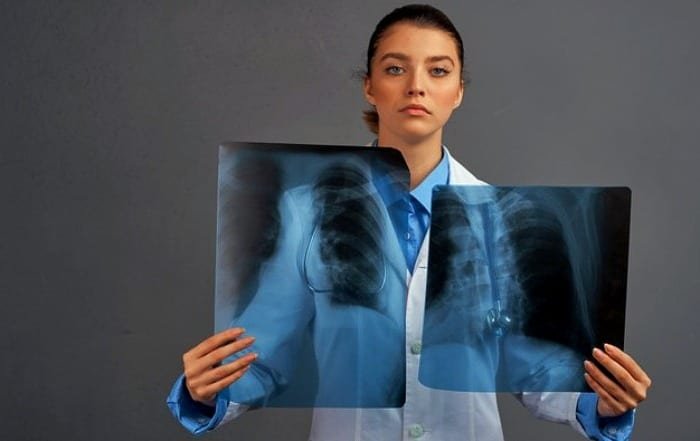
Causes of Chest Pain Related to Lungs:
Many lung disorders can lead to chest pain, including:
Pulmonary Embolism:
This occurs when a blood clot forms in the pulmonary artery, blocking blood flow to lung tissue.
Pleurisy:
If the membrane covering your lungs becomes inflamed, it can cause chest pain that worsens when you cough or breathe.
Injury to the Lung and evenRunningin cold weather:
Chest pain related to lung injury usually starts suddenly and can last for hours, often accompanied by shortness of breath. Lung injury occurs when air enters the space between the lung and ribs.
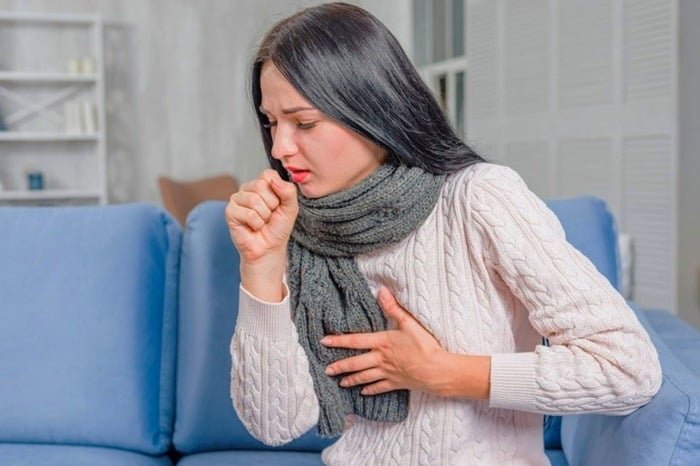
Lung diseases are causes of chest pain
High Blood Pressurein the Lung’s Upper Region:
This condition occurs when there is high blood pressure in the arteries carrying blood to the lungs, which can cause chest pain.
Other Causes of Chest Pain:
Chest pain can also result from the following:
Shingles:
Caused by the reactivation of the chickenpox virus,shinglesmay cause pain and a cluster of blisters from the back to the wall of your chest.Panics Attacks:If you experience intense fear along with chest pain,
rapid heartbeat
fast breathing, excessive sweating, shortness of breath, nausea, dizziness, and fear of dying, you might be experiencing a panic attack.Panic attacks are a cause of chest painWarning:
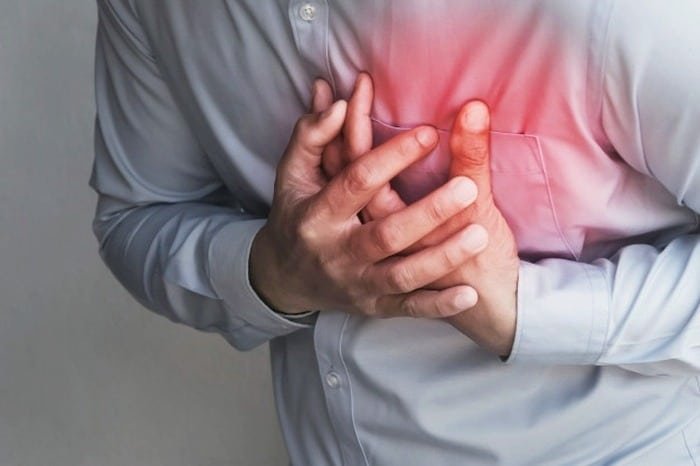
Any chest pain lasting more than 15 minutes, whether alone or accompanied by increased sweating, shortness of breath,
dizziness
sudden pain radiating to the left arm or neck may be a sign that you had a heart attack previously and are unaware of it, thus, it is strongly advised that if such a condition arises, you should contact emergency services for immediate medical attention.Chest PainCauses of Chest Pain



